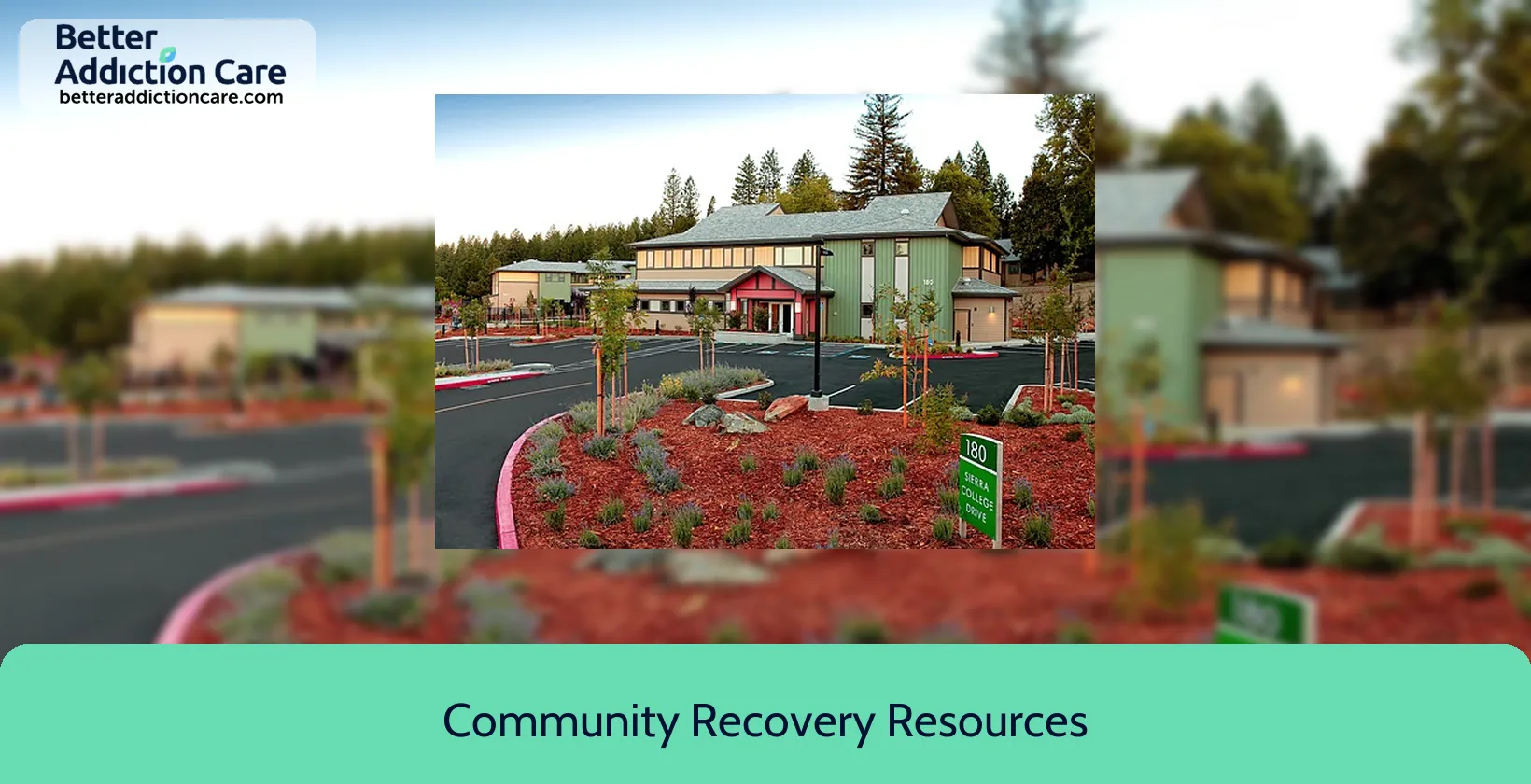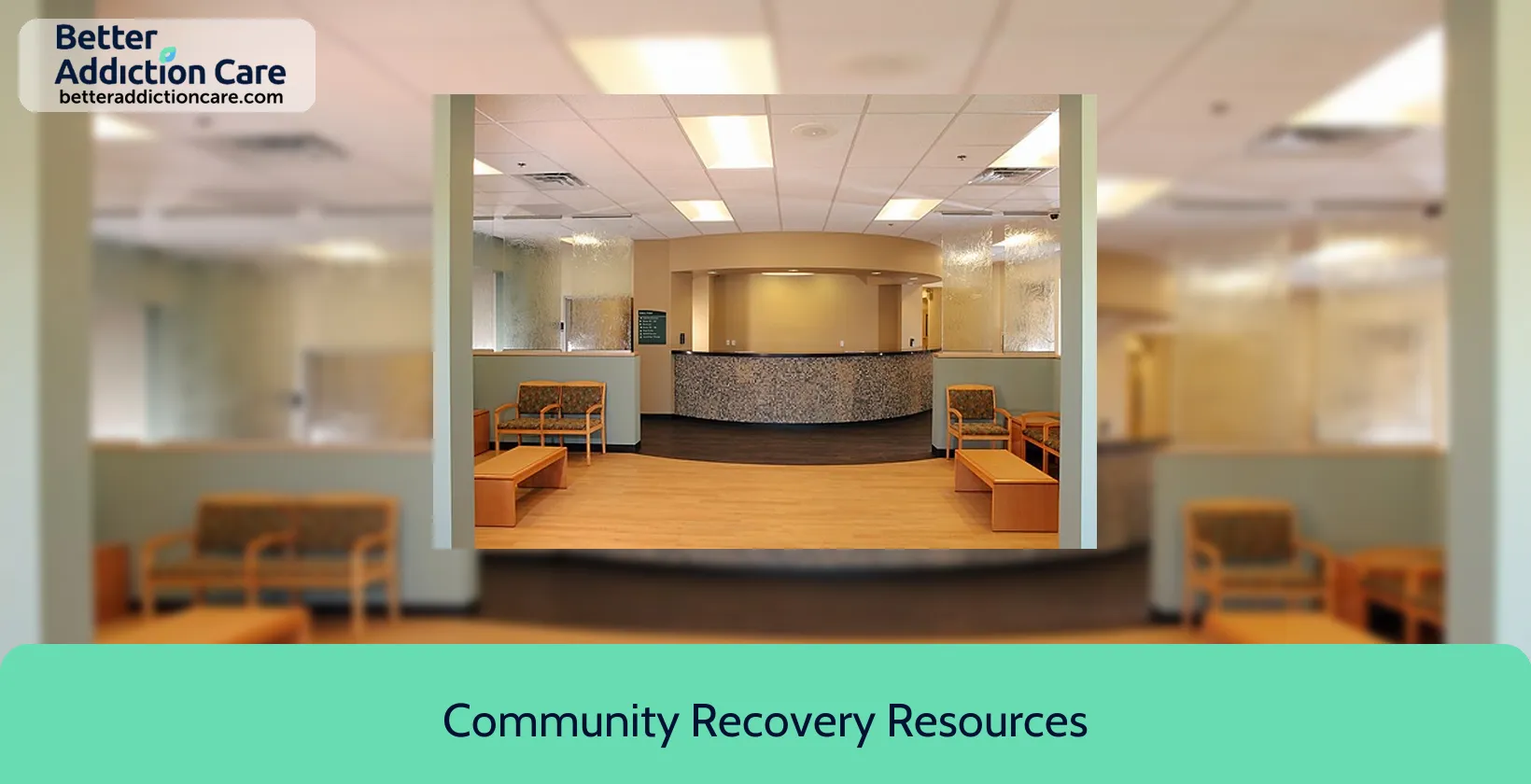Community Recovery Resources
Overview
Granite Wellness Centers, formerly known as Community Recovery Resources, operates multiple locations, including its facility in Grass Valley, California. This center is dedicated to providing comprehensive and compassionate care for individuals struggling with substance use disorders. The facility offers a variety of programs designed to meet the unique needs of its clients, including detoxification, residential treatment, and outpatient services.
During the detox program, clients are closely monitored by healthcare professionals to ensure their safety and comfort. The facility also employs medication-assisted treatment (MAT) to help minimize withdrawal symptoms, using FDA-approved medications as part of the care process. This approach not only eases the physical challenges of detox but also supports the overall recovery journey.
The residential treatment programs at Granite Wellness Centers vary in length, typically ranging from 30 to 90 days, depending on the individual's needs. The program is inclusive, accepting men, women, pregnant women. This holistic and family-oriented approach ensures that all members of the family receive the support they need during the recovery process.
The treatment modalities employed at Granite Wellness Centers include Cognitive Behavioral Therapy (CBT), trauma-focused therapy, and specialized drug and alcohol counseling. These evidence-based therapies are tailored to address the underlying issues that contribute to addiction, fostering long-term recovery. Additionally, the facility offers educational groups that provide clients with valuable knowledge and skills to support their sobriety and overall well-being.
Through its comprehensive range of services and commitment to individualized care, Granite Wellness Centers in Grass Valley continues to be a vital resource for those seeking recovery from addiction.
Community Recovery Resources at a Glance
Payment Options
- Private health insurance
- Cash or self-payment
- State-financed health insurance plan other than Medicaid
- Sliding fee scale (fee is based on income and other factors)
- Medicaid
Assessments
- Comprehensive mental health assessment
- Comprehensive substance use assessment
Age Groups
- Adults
- Children/adolescents
- Young adults
Operation
- Treatment duration
- Private non-profit organization
- Private for-profit organization
Highlights About Community Recovery Resources
7.41/10
With an overall rating of 7.41/10, this facility has following balanced range of services. Alcohol Rehabilitation: 8.00/10, Drug Rehab and Detox: 6.92/10, Insurance and Payments: 6.67/10, Treatment Options: 8.06/10.-
Treatment Options 8.06
-
Alcohol Rehabilitation 8.00
-
Drug Rehab and Detox 6.92
-
Insurance and Payments 6.67
Accreditations
Commission on Accreditation of Rehabilitation Facilities (CARF):

CARF accreditation is a prestigious recognition granted to rehabilitation and human service organizations. It signifies that an organization meets high-quality standards, having undergone a rigorous evaluation process. CARF accreditation boosts an organization's credibility and ensures top-notch care for individuals with disabilities, injuries, or healthcare needs.
Registration: 203998
SAMHSA certification for opioid treatment program (OTP):
SAMHSA's Opioid Treatment Programs (OTP) Accreditation is a rigorous recognition process, signaling an OTP's commitment to high-quality care for those with opioid use disorders. It assures patients, families, and the community that the program adheres to evidence-based practices, maintains a safe environment, and employs qualified staff. This accreditation represents a commitment to addressing the opioid epidemic and promoting recovery, symbolizing quality and accountability in opioid addiction treatment.
State department of health:

Government agencies issue State Licenses, granting rehabilitation organizations permission to operate their businesses legally within specific geographic regions. The licenses needed for legal operation are typically determined by the type of rehabilitation program offered by a facility and its physical location.
Registration: 290002AN
Treatment At Community Recovery Resources
Treatment Conditions
- Mental health treatment
- Alcoholism
- Opioid Addiction
- Substance use treatment
- Co-occurring Disorders
Care Levels
- Intensive outpatient treatment
- Detoxification
- Aftercare
- Halfway house
- Outpatient
Treatment Modalities
- 12-step facilitation
- Group counseling
- Individual psychotherapy
- Family counseling
- Marital/couples counseling
Ancillary Services
Special Programs
- Clients with HIV or AIDS
- Pregnant/postpartum women
- Clients who have experienced trauma

Additional Locations
Contact Information
Read our Most Recent Article About Drug Addiction
DISCLAIMER: The facility name, logo and brand are the property and registered trademarks of Community Recovery Resources, and are being used for identification and informational purposes only. Use of these names, logos and brands shall not imply endorsement. BetterAddictionCare.com is not affiliated with or sponsored by Community Recovery Resources.











